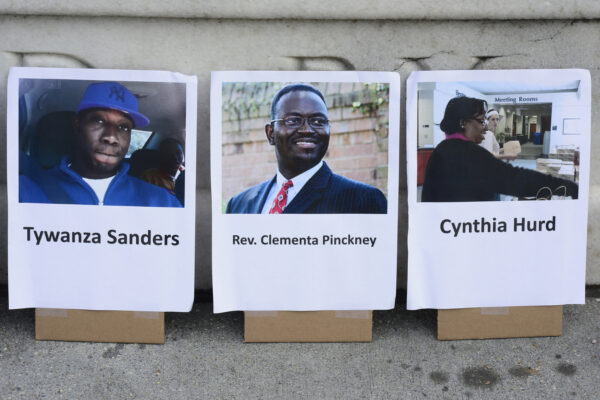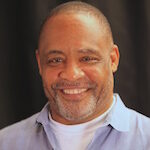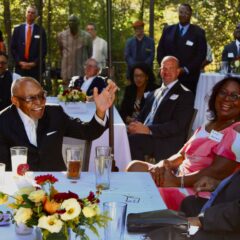In addition to serving as the Executive Director of the Cecil Murray Center for Community Engagement, Rev. Mark Whitlock is pastor of Christ Our Redeemer AME Church in Irvine, CA.
Last night, a young white man shot and killed nine people at Emanuel African Methodist Episcopal Church in Charleston, South Carolina. I have been holding Bible studies for 18 years, and people walk in all the time. To have somebody sit there for the hour and then kill everybody in the room except three people—I pray it was an act of insanity and not some plot by a group.
Several years ago, Rev. Cecil Murray and I experienced a plot to blow up First AME Church in Los Angeles. The FBI discovered a hate group behind the plot, and it was made up of young people—16, 18 and 21 years old. They had collected bombs and guns, and they had planned to come to First AME Church on a Sunday, blow it up and shoot everybody.
When I met these kids, I realized they weren’t the tattoo-wearing, grizzly white supremacist stereotype you might think of. No, these were everyday people, just like this kid in South Carolina.
My hope is that this week’s attack was a random act of violence. But if this is some group or plot, then we all have something to be very concerned about. There were reports of bomb threats the following day. We are dealing in very difficult, unimaginable times.
The ripple effect touches AME churches throughout the world, some 7,000 individual churches that are part of our denomination. It also touches every house of worship, no matter what denomination, no matter what faith. It touches us all. Most of us don’t have armed guards out front, metal detectors or cameras. We are a people of peace and faith.
For me it’s unsettling because you want people to come to your church. Christ Our Redeemer Church, where I am a pastor, is in a majority white community in Irvine, California, and over the past 17 years we have pushed to have a multiracial church. It is ordinary for white people that we don’t know to come into church. It is typical for younger white people—21, 22, 25 years old—to come into our church.
That’s not the custom of the African Methodist Episcopal Church; it tends to be 99 percent African American. But much like Emanuel AME in Charleston, we celebrate when we get that diversity.
My fear is that now, diversity will be met not with celebration, but suspicion. With the killings of black men by police, there are so many people on edge with race relations right now. I hope that this is not a prelude to what may take place this summer.
Last night, we had the police just show up without a call; the officer was just concerned about our safety. My young people were confused about why he was there, but I told them he was an angel. The police chief attended our prayer meeting Thursday night, along with the executive director of the Orange County Human Relations Commission, the sheriff and several multiracial groups.
We met Thursday morning as the Southern California conference of the African Methodist Episcopal Conference to talk, to pray and to plan for the safety of our members. The LAPD and many civil rights organizations also attended. If one is hurt, it’s on our watch.
But if the plot by the gunman was to challenge race relations, to create terror, we cannot let him succeed.
I cannot stop crying, but I refuse to grow angry, because it won’t help anything. We must stay on the course to integrate the church. We must stay on the course to create a multiracial, multi-ethnic platform for worship.
The AME church is the church militant. We are the social justice church; we are the civil rights church. That’s who we are; that’s our tradition. If it was a plot, they picked the wrong church.
We’re going to go even harder, faster, longer—with great zeal. We are the beloved community, and we’re going to love them to heaven.
Photo Credit: Stephen Melkisethian/Flickr
Mark Whitlock is a contributing writer for the USC Center for Religion and Civic Culture.


